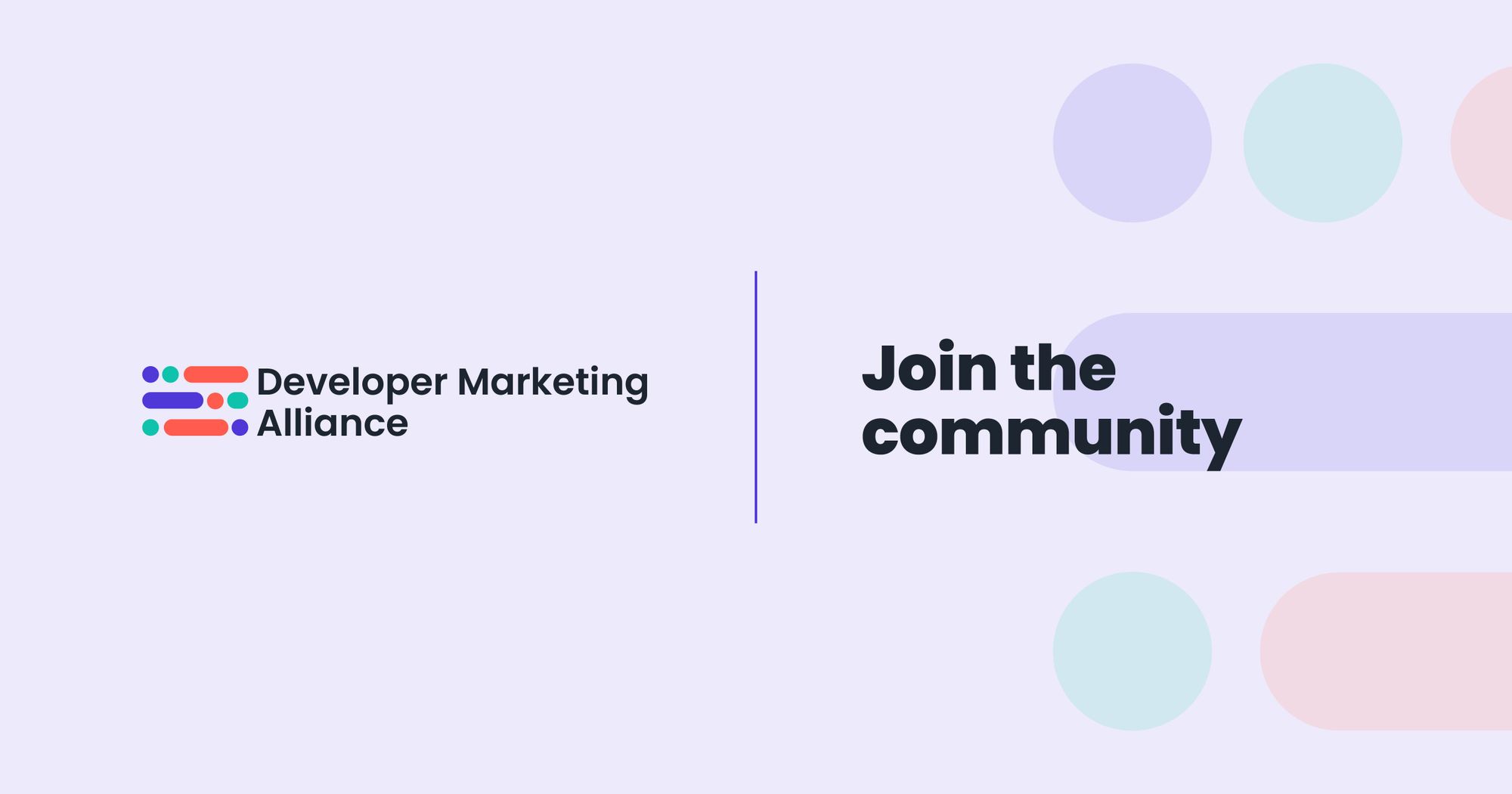Developers have that innate sense of wanting to be a part of something, just like anybody else. The tech world is challenging enough without the added difficulty of having no support system, which is where developer communities come in.
Whether you’re building a developer community from scratch or joining an existing, active one, you’ll find that investing time and effort into a dev community offers many benefits to both developers and marketers.
We’re taking a look at them below. 👇
- What are developer communities?
- The benefits of a developer community
- How to build developer communities
- How to engage your developer community
- Create community-driven champions

Psst! Why not download this article in ebook format, so you'll always have these insights at your fingertips?
What are developer communities?
A developer community does what it says on the tin – it’s a place for people who share the same interests to gather and talk about their successes and failures, expand their knowledge base, find a mentor, grow their skills, etc.
However, as no developer’s the same, you won’t find them all in one place. From StackOverflow to Slack and GitHub, developers hang out across many different platforms and websites.
Dev communities help them to discuss any issues they might be having, allow them to aid other developers, and so much more, and it’s important that marketers understand that before interacting with community members.
If you focus mainly on promoting your product instead of adding value to developers and answering their needs and pain points, you won’t find the success you’re looking for. So, while product adoption may be your ultimate goal, you’ll want to keep in mind why devs join communities in the first place!
Developer relations (DevRel) plays a very important role in this. It helps you to foster relationships between developers and orgs, and aim to improve customer satisfaction, increase sales, boost product adoption, and so much more. With an estimated 29 million devs expected by 2024, DevRel can help you to maximize this massive market as tech advances as well.
To do this, you’ll want to engage with developer audiences – and where do you find them? Well, in dev communities, of course!

The benefits of developer communities
The tech world is challenging and characterized by rapid changes, so it can be hard to succeed as a lone wolf. Communities give developers the support they need, be it in terms of the latest tools and processes or by learning what worked for others, for example.While it can be tempting to push for a sale when interacting with developers, devs join communities to solve problems they may be having, develop their skills, network with peers, find a mentor, contribute more easily to open-source projects, and more. Not to be sold to.
In order to win the hearts and minds of your developer community, you must first provide them with value. Give before taking – this way, you’re more likely to engage people and have them try your product.
You can read more about why developer communities matter in our blog, but, for now, we leave you with some of the benefits of belonging to a dev community as a marketer:
- The opportunity to rifle through an encyclopedia of knowledge that’ll help you gain product insights.
- Become more trustworthy – this is key when marketing to developers, since they tend to listen to their peers. If you don’t possess the necessary tech knowledge or haven’t built your credibility, you won’t get the results you’re looking for.
- You can boost your brand awareness more easily if you belong to a dev community, since you’re able to showcase your company and products.
- Many developers join communities because they want to network with others – you can do the same when you join a dev community. You get the chance to build relationships with people and connect with key people in the tech world, which might give you the edge you need when it comes to developing or marketing your product.
- Increase product adoption rates. Belonging to a community can get your product in front of more developers, and you can also have developer champions that help you further promote your product.
- Get product feedback – the opportunity to ask for feedback from developers is invaluable, as it can help you improve your product, tweak features, and get an idea of what’s missing in the market. Testimonials and case studies, for instance, are also great for social proof and showcase to other devs how your product works and the benefits it offers.

How to build developer communities
Adopting a bottoms-up approach that allows you to target developers (who now have a lot of buy-in at their companies – 57% of developers influence the technology-purchasing process) is crucial. Developing strong communities where devs can thrive, share insights, discuss tech, support one another, etc., can help you achieve this.
There are some things you may want to consider when looking to build a solid dev community, including:
Figure out the problems the community wants to solve
Understanding the issues your dev community has and working hard to address them are the way to gain their trust and build advocacy. While developer communities can help you to market your product, this is not their purpose, meaning you’ll want to focus on adding value instead.
For example, Guy Podjarny, co-founder and president of Snyk, started offering cloud-native security in 2015 to help software devs solve the challenge of keeping their code free from security flaws. He says:
“Developers told me they wanted to build security into development and we realized the reason developers hadn’t embraced security products in the past was because these products weren’t designed for them – the industry had really failed in that regard – so we knew if we wanted developers to embrace our product, we would have to build an entirely developer-first company, and so that’s what we did.”
Today, over 2.2 million developers use Snyk.
Have a platform for developers to gather
There are many places where you can find developers, from Slack and Discord to Microsoft Teams and Reddit. In the end, it doesn’t really matter what you choose, as long as your target audience hangs out there! It’s crucial to have a space for developers to connect and interact with one another – and for you to engage them.

Host events
This might not be the first thing that comes to mind, but there’s no denying the importance of organizing events, be it in person or virtual, where developers can share ideas, network, etc.
You can also put on expert sessions that allow devs to expand their knowledge, learn more about the industry, develop particular skills (for instance, with a coding tutorial), and so much more.
Why not also set up a yearly event like a hackathon? This can be highly engaging for developers and allow them to collaborate to solve a problem or simply to have fun!
An example of an industry event with lots of experts and learning opportunities is our Developer Marketing Summit, where you have the chance to listen to the pros and connect with other professionals.
Speak developers’ language
While speaking your audience’s language is always important, the same is doubly true for developers. They’re highly technical-minded and appreciate a straightforward approach, so tailor your messaging and product positioning to reflect that.
Because they’re so tech-savvy, developers understand if someone isn’t being genuine and/or is simply looking for a sale without truly wanting to engage with them. So, when you interact with devs, approach the convo from their point of view – do they have a specific problem they want to solve, as mentioned? Are they looking for a particular software solution or want an answer to an urgent query?
In short, think about how you can help developers and you’re already on your way to success!
Be there for developers
While you don’t have to be online 24/7, it’s vital you’re active and respond to people’s questions in a timely manner. The members of your community will also become familiar with you, your brand and your product the more you participate in discussions and/or share insights.
You can set up your own developer relations team to manage the community, ensuring no question goes unanswered! It’s also important to remain authentic, as developers know when they’re being sold to. Opt to educate and provide knowledge and expertise instead.

Create the best content for devs
Content really is king, as said by Bill Gates in 1996. Without it, it’d be difficult to communicate with developers or offer them value.
When creating content for developers, curate the most useful, make sure it’s actionable and straight-to-the-point – you can also focus on many different types of content, depending on what works best for your audience.
This can be, documentation, tutorials, demos, and more.
Recognize people
In a community, there’ll always be members who engage more, who’re happy to answer their peers’ questions and even talk about your product to other professionals.
If there are developers like this in your community, make sure to recognize them! Whether it’s because they help other people with useful, interesting posts, or because they actively participate in discussions, encourage them to continue by recognizing their work and contributions.
This doesn’t have to be an award, though there’s something to be said about having a leaderboard; it can be a mention in an article you write, for example.
Request feedback
We’ve already brushed up on why dev feedback is so useful, but it doesn’t hurt to reinforce it! Developers like to be involved, so allow them to share their insights, as well as ideas on how you can improve your product or feature.
By acting on the feedback you receive, you’re also showing your community that you value their input, which is great to build trust.
Be inclusive
It goes without saying that you should strive to create a diverse community, which will also help you to grow. A reputation for inclusivity will increase your chances of developers recommending the community to people they know.
How to engage your developer community
To enjoy the benefits that dev communities offer, you’ll need to engage your target audience, and ensure they’re satisfied with your offerings (whether with your product or the community itself).
There are many different ways to go about this, so here are some of them:
Know your audience
Every developer is different, despite the fact that they share some common characteristics (such as an aversion to traditional marketing). This means there isn’t a one-size-fits-all approach when it comes to engaging with devs, and you must know everything you can about your specific audience, including their needs and pain points.
Being aware of this means you can improve your targeted messaging and understand what works for your particular audience.
To get to know them, there are several things you can do, including:
- Taking a look at the data you already have on developers, such as your own database or even on Google Analytics,
- Perform surveys and interviews,
- Conduct market and competitor research,
- Keep an eye on the feedback and comments you get,
- Create developer personas, and
- Revise your information whenever you get new data.

Expand your knowledge
When interacting with a technical audience like developers, you must have a solid knowledge base in order to engage them. Developers will likely listen more to people who are also techy over marketing or sales people.
Learn as much as you can about the product you’re promoting so you’re able to answer any questions developers may have about it and its features, which can also help you to create useful documentation, tutorials, how-to guides, etc.
Actively listen to developers
Everyone likes feeling listened to – and knowing their contributions matter. So, when engaging developers, make sure that you’re acting on the feedback you’re given, offer devs the chance to beta test your product, involve them in a community champion program, and keep track of any patterns that may emerge in devs’ conversations.
You can also ask the community their thoughts on a particular subject, survey them for any improvements you can make, and more.
Support open-source projects
Open-source tools, software, and solutions are widely used in the tech world, meaning they’re crucial to disciplines like IT, artificial intelligence, machine-learning, and Web3. Developers like open-source applications, but only if there’s enough support for them.
If your community provides this support, you’re more likely to keep developers engaged. From sharing valuable data to sponsoring API projects, there are several ways you can contribute to open-source efforts while helping devs at the same time.
Gamify devs’ experience with your community
Gamification has become increasingly popular the last few years, as it’s used to influence and motivate people – in short, it refers to applying gaming techniques to boost user engagement and satisfaction, as well as loyalty to a company, brand, or product.
By using gamification tactics, you can keep developers interested in participating in your community. You can, for example, award badges for people who have achieved a milestone in your community, such as a certain number of posts, or you can also create a leaderboard that rewards top contributors.

Create community-driven champions
Developer champions – as well as developer advocates – are a crucial part of dev communities, as they can help brands and companies to promote their products.
Champions will recommend your product to their peers, so don’t miss out on this big opportunity.
According to Sabrina Marechal and Jason Johl from MuleSoft, there are many benefits from having a champion program in place, such as a boost in reach and product adoption. Advocates will also help you by hosting events, creating tutorials for other devs, setting up Q&A sessions, etc., so their help can go a long way!
Many companies have developer champion programs, including:
A champion program allows developers to shine as well, which is especially important for devs who want to give their reputation a boost. We talk more in detail about this topic in our “Why developer communities matter”.
Be part of our Slack community and connect with other developer marketers, receive job ads, be up to date with the latest in the industry, and so much more.







